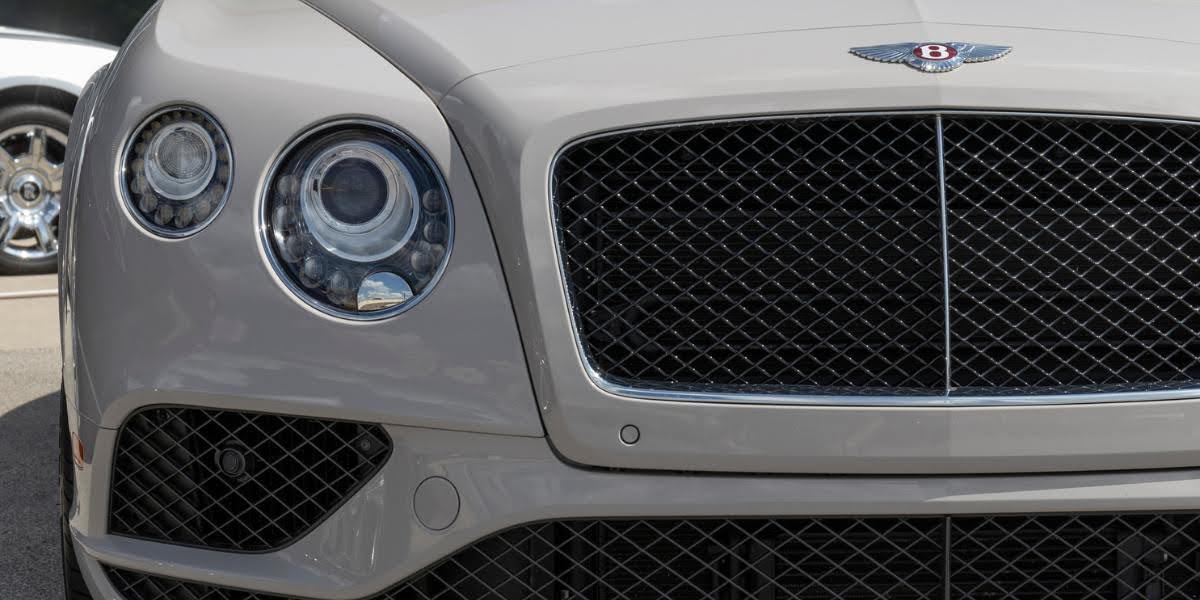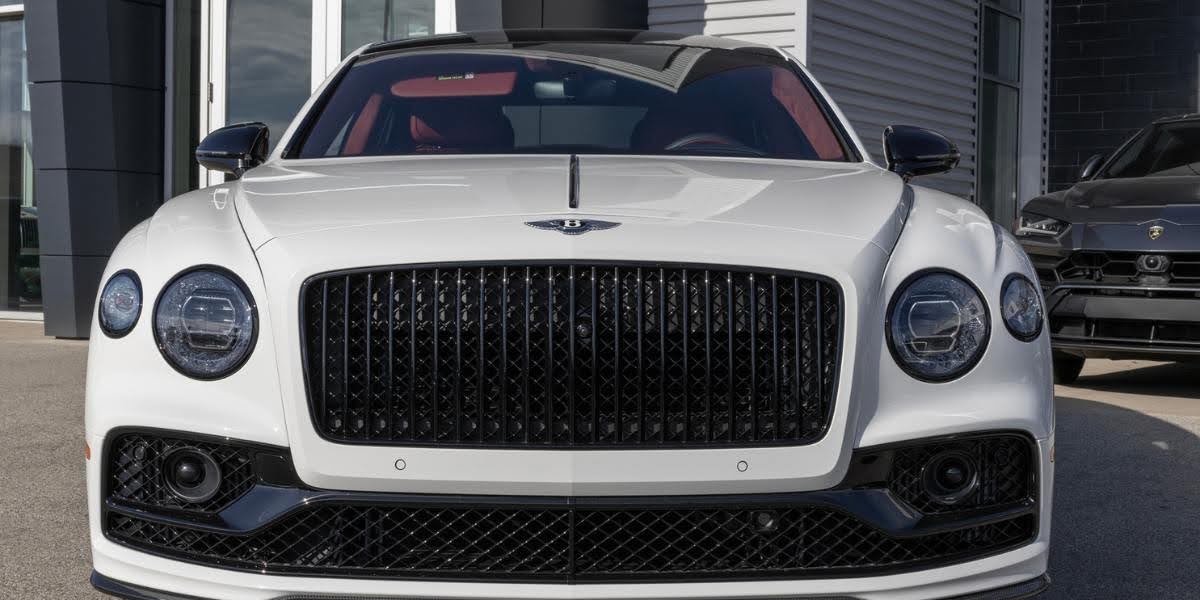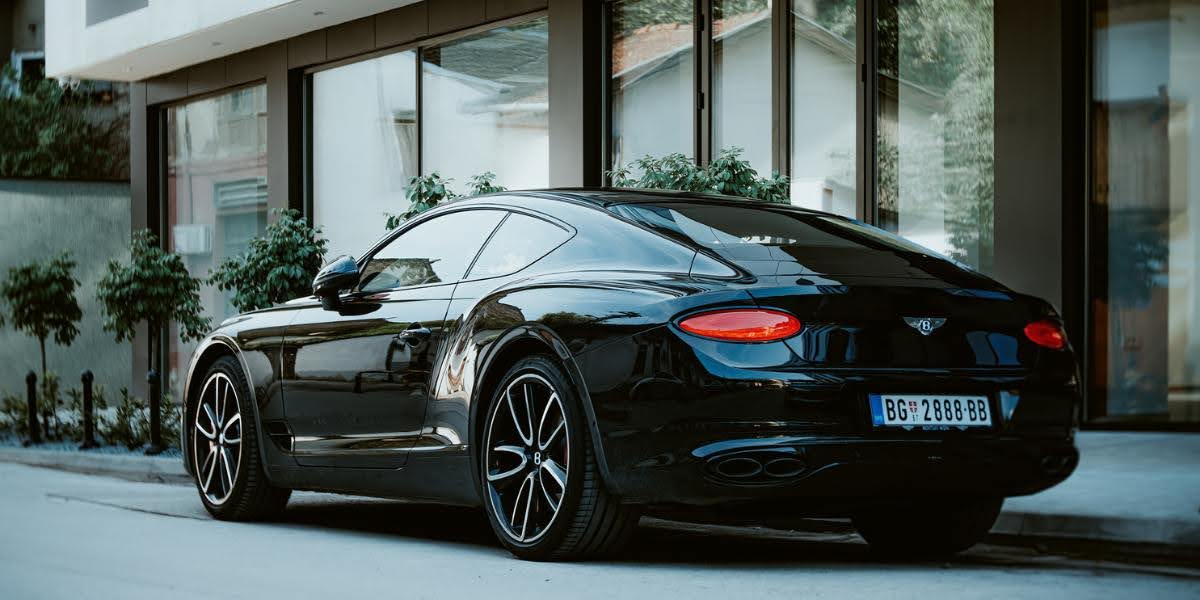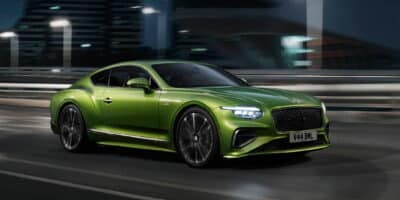When it comes to luxury cars, few engines are as iconic as the W12 engine. For over 20 years, the Bentley W12 engine has symbolized power, performance, and elegance. But as the auto industry shifts toward greener technology, Bentley is getting ready to retire this legendary engine. In this post, we’ll explore the history of the W12 engine, what makes it special, and why its end marks a major turning point for Bentley.

The Birth of the W12 Engine: A Game-Changing Design
The story of the W12 engine began in the late 1990s when Volkswagen Group, which owns Bentley, set out to develop a new type of engine that could deliver outstanding power and performance while remaining compact and efficient. At that time, most luxury carmakers relied on traditional V8 or V12 engines. However, these engines were large, heavy, and took up significant space under the hood, which limited how they could be used in vehicle design. Volkswagen wanted something different—a powerful engine that was both efficient and smaller in size.
What Makes the W12 Engine Unique?
The solution was the W12 engine, an innovative design that combined two narrow-angle V6 engines mounted on a single crankshaft, creating a “W” shape. This clever arrangement allowed Volkswagen engineers to fit more cylinders into a compact space without making the engine too heavy or bulky.
Here’s how the W12 engine differs from other engines:
- Compact Size: By placing two V6 engines side by side, the W12 design is shorter and narrower than a traditional V12 engine. This compact size makes it easier to fit into different car models without sacrificing interior space.
- Lighter Weight: The W12 engine is lighter than many V8 or V12 engines, which helps improve the car’s overall performance and handling.
- More Power in Less Space: With 12 cylinders firing in a compact layout, the W12 engine can produce incredible power and smoothness while remaining efficient.
Why Did Bentley Choose the W12 Engine?
Bentley, known for crafting luxurious, high-performance cars, saw the potential of this new engine design. They needed an engine that could deliver powerful acceleration, smooth driving, and the refined experience their customers expect. The W12 engine was a perfect fit.
By using the W12, Bentley was able to offer:
- Incredible Power: The engine’s 12 cylinders provided a significant boost in horsepower compared to traditional V8s.
- Smooth Performance: The unique W configuration allowed for smoother operation, reducing vibrations and delivering a quiet ride—something Bentley drivers value.
- Better Fuel Efficiency: Compared to other high-powered engines, the W12 was surprisingly efficient, making it a smart choice for luxury cars that also needed to meet stricter emissions standards.
How the Bentley W12 Became a Symbol of Luxury
Bentley introduced the W12 engine to the world in 2003 with the launch of the Bentley Continental GT. At the time, it was revolutionary. The car quickly became a favorite among luxury car enthusiasts, not only for its beautiful design and luxurious interiors but also for its impressive performance on the road.
What Made the Continental GT with the W12 Engine So Special?
- Power and Speed: The original Bentley Continental GT, powered by the W12 engine, could generate over 550 horsepower and 479 lb. ft of torque. This allowed the car to reach speeds of over 190 mph.
- 0 to 60 in Under 5 Seconds: For a car of its size and luxury class, going from 0 to 60 mph in just 4.7 seconds was an impressive feat. It combined the elegance of a grand tourer with the speed of a sports car.
- Luxury Meets Performance: While other luxury cars focused on either comfort or speed, Bentley’s W12-powered models achieved both. The Bentley W12 engine delivered power smoothly, so drivers enjoyed a refined and comfortable ride even at high speeds.
How Did Bentley Continue to Improve the W12 Engine?
Bentley engineers didn’t stop after the first W12 engine was introduced. Over the years, they continued to refine and enhance the engine to deliver even more power and better performance. Here’s how they did it:
- Boosting Horsepower: In newer models like the Bentley Continental GT Speed, Bentley managed to increase the engine’s output to an impressive 626 horsepower. This allowed the car to reach 0 to 60 mph in just 3.6 seconds—a significant improvement over earlier models.
- Advanced Turbocharging: By adding twin turbochargers, Bentley was able to enhance the engine’s torque, providing better acceleration and performance at lower RPMs. This meant that drivers could experience quicker, more responsive power whenever they needed it.
- Enhanced Fuel Efficiency: Bentley also integrated new technologies like cylinder deactivation, which shuts down half of the engine’s cylinders when full power isn’t needed. This helped improve fuel efficiency without sacrificing performance.
Why is the W12 engine being phased out if it’s so powerful?
As the automotive industry moves toward greener technologies, many carmakers, including Bentley, are shifting their focus to electric vehicles. The W12, while powerful, doesn’t align with the new focus on reducing emissions and increasing fuel efficiency. Bentley has announced plans to become a fully electric brand by 2030.
Is the W12 engine only used in Bentley cars?
While the W12 engine is best known for its use in Bentley models, it was also used in some high-end Volkswagen and Audi vehicles. However, Bentley is the brand most closely associated with the W12 due to its focus on luxury and performance.
What will Bentley use to replace the W12 engine?
Bentley plans to transition to electric powertrains that can deliver similar levels of performance as the W12 engine. The company’s upcoming electric models will use advanced battery technology and electric motors to maintain the brand’s reputation for speed, luxury, and smooth performance.

The W12 Engine’s Impact on the Automotive World
The W12 engine has been a game-changer in luxury automotive engineering since its debut. By bringing together immense power with sophisticated refinement, it showed that you don’t have to sacrifice one for the other. This engine was a crucial part of Bentley’s success, and it set new standards for what a high-end vehicle could achieve.
But what exactly made the W12 engine so special? And why is Bentley choosing to retire it? Let’s dive deeper into how this engine revolutionized luxury cars and what it means for the future.
How Did the W12 Engine Redefine Luxury Performance?
Bentley’s W12 engine changed the way people thought about luxury cars. Traditionally, luxury cars were all about comfort, design, and smooth rides, while performance was left to sportier, less comfortable models. The W12 flipped this idea on its head by proving that:
- Powerful Performance & Luxury Can Coexist: Bentley was able to produce cars that were just as fast as many sports cars but far more refined. The W12 engine could push Bentley’s cars to top speeds over 190 mph while keeping the ride whisper-quiet and smooth.
- Effortless Acceleration: With its impressive torque, the W12 engine made accelerating feel effortless. You could go from 0 to 60 mph in under four seconds in some models, all while surrounded by Bentley’s famous handcrafted interiors.
By combining power and comfort, the Bentley W12 engine helped the brand set a new benchmark for what a luxury car could be.
How Did the W12 Engine Influence Other Automakers?
Bentley’s success with the W12 engine didn’t just benefit the brand—it also had a ripple effect across the automotive industry. Here’s how:
- Inspired New Engine Configurations: The W12 showed that you could fit a lot of power into a compact engine design, leading other automakers to rethink their own engine layouts. This led to innovations like V8s with turbochargers and even other W-configurations.
- Pushed the Limits of Internal Combustion Engines: The W12 proved that there was still room to innovate with traditional gasoline engines, even as the industry began shifting toward hybrid and electric models.
Bentley’s W12 engine set the bar for luxury vehicles. It also inspired competitors to innovate in delivering power. Efficiency became a focus for many due to its influence.
How Did Bentley Keep Improving the W12 Engine?
Bentley didn’t just rest on its laurels after creating the W12. Instead, they continued to push the boundaries of what the engine could do. Let’s look at some of the key innovations that kept the W12 engine ahead of the competition:
- Cylinder Deactivation: This clever system allowed the engine to turn off half of its cylinders when full power wasn’t needed. For example, when cruising on the highway, the engine could operate as a V6. This helped save fuel efficiently. Performance remained unaffected when acceleration was required.
- Twin Turbochargers: The use of two turbochargers ensured instant torque, which means that even at low speeds, you’d feel a burst of power. This was particularly useful for smooth and quick acceleration.
- All-Wheel Drive: The W12-powered Bentleys came with advanced all-wheel drive, providing better traction and control in all types of weather conditions. This added stability made Bentley vehicles not just powerful, but also safer and easier to handle.
These technologies kept the Bentley W12 engine relevant and competitive, even as the auto industry started leaning towards hybrids and EVs.
Why Is Bentley Saying Goodbye to the W12 Engine?
As much as Bentley and its fans love the W12 engine, times are changing. The world is moving towards a future that focuses on sustainability and reducing emissions. Here are some of the main reasons Bentley is retiring the W12 engine:
- The Push for Electrification: The global automotive industry is rapidly moving towards electric vehicles (EVs) to reduce pollution. Governments are setting stricter emissions standards, and Bentley wants to stay ahead of the curve.
- Bentley’s “Beyond100” Plan: This strategy aims to transform Bentley into a fully electric car brand by 2030. To achieve this, Bentley will stop producing the W12 engine by 2026. Phasing out the W12 is just one step in a larger plan to become a leader in luxury electric cars.
- Investing in the Future: Although Bentley is retiring the W12, they’re not giving up on performance. They are investing in electric drivetrains. These will deliver the power Bentley drivers expect. Elegance will remain a key feature. The new drivetrains will operate without emissions.
Q: Why is Bentley focusing on electric vehicles?
A: Bentley understands that the future is electric. Electric cars are not only better for the environment, but they also offer the kind of instant torque and smooth acceleration that Bentley drivers love. By going electric, Bentley can continue to deliver high performance in a way that aligns with global sustainability goals.
What Is the Legacy of the Bentley W12 Engine?
Even as we prepare to say goodbye to the Bentley W12 engine, its legacy will live on for years to come. Here’s why this engine will always be remembered:
- A Symbol of Luxury and Power: For nearly two decades, the W12 engine was the beating heart of Bentley’s most luxurious models, including the Continental GT and the Bentayga SUV. It was a symbol of Bentley’s dedication to craftsmanship and performance.
- An Unforgettable Driving Experience: The sound of the engine revving up, the smooth yet powerful acceleration, and the unmatched comfort of a Bentley interior made driving a W12-powered car a truly special experience.
- A Pioneering Spirit: By pushing the limits of internal combustion engines, the W12 set the stage for Bentley’s next chapter. As Bentley transitions to electric vehicles, they’ll carry forward the spirit of innovation that defined the W12 era.
What’s Next for Bentley?
With the end of an iconic era, Bentley is already looking to the future. The brand is investing heavily in developing electric vehicles that are just as luxurious and high-performing as their gas-powered predecessors.
Here’s what Bentley’s future looks like:
- First All-Electric Model Coming in 2025: Bentley’s first electric vehicle is set to launch in 2025, with plans to release a full lineup of EVs by 2030.
- Maintaining Bentley’s Signature Luxury: Even as they shift to electric power, Bentley is committed to ensuring their new models continue to offer the luxury, craftsmanship, and driving pleasure that customers expect.
Q: Will Bentley’s electric cars be as powerful as the W12-powered models?
A: Absolutely! Bentley’s electric vehicles will use advanced batteries and motors. These will deliver impressive speed and performance. The smooth and refined driving experience will be maintained. This continues the tradition Bentley is known for.
As Bentley phases out the W12 engine, they’re focusing on creating electric vehicles that will still offer the luxury and performance the brand is known for. Bentley’s first fully electric car will be released in 2025. The brand plans a full lineup of electric models by 2030
These electric vehicles won’t just be eco-friendly; they’ll also deliver the kind of power and smooth ride Bentley fans expect. Bentley is using advanced batteries and electric motors. These technologies ensure future cars remain thrilling to drive. They aim to match the performance of W12-powered models.
The W12 Engine’s Final Chapter
The retirement of the Bentley W12 engine is a bittersweet moment for car lovers. We’re saying goodbye to an engine that defined an era of luxury and performance. But as Bentley looks ahead to a more sustainable future, there’s also a lot to be excited about. The next chapter in Bentley’s story will focus on electric power. It will continue delivering luxury and craftsmanship. Bentley will maintain the exceptional driving experience the brand is famous for.
Interested in learning more about Bentley’s journey into the future? Explore our current range of models or contact us for more details on Bentley’s upcoming electric vehicles.






